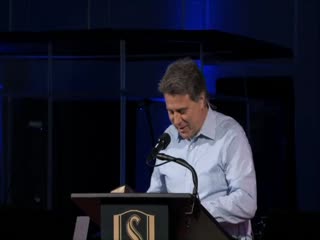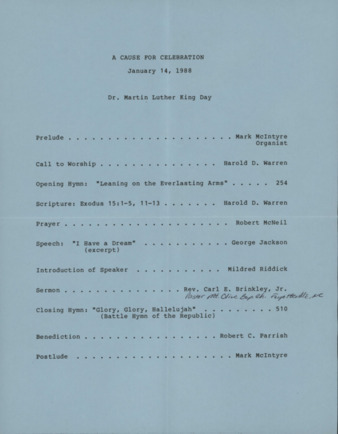Search Constraints
« Previous |
1 - 10 of 73
|
Next »
Search Results
Select an image to start the slideshow

SEBTS Missionary Day Address - Les and Hazel Watson November 22, 1988
1 of 10

President Drummond Inauguration October 11, 1988
2 of 10

SEBTS Chapel - Jim Shaddix April 9, 2013
3 of 10

SEBTS Chapel - John Warwick Montgomery November 14, 2006
4 of 10

SEBTS Chapel - Albert Edwards November 19, 1985
5 of 10

SEBTS Chapel - Carl E. Brinkley, Jr. January 21, 1988
6 of 10

SEBTS Chapel - Francis M. DuBose January 15, 1987
7 of 10

Message by John Draper at Reidsville Primitive Baptist Church
8 of 10

SEBTS Chapel - James L. Sullivan April 15, 1971
9 of 10

SEBTS Chapel - Jack Gentry January 12, 1971
10 of 10








